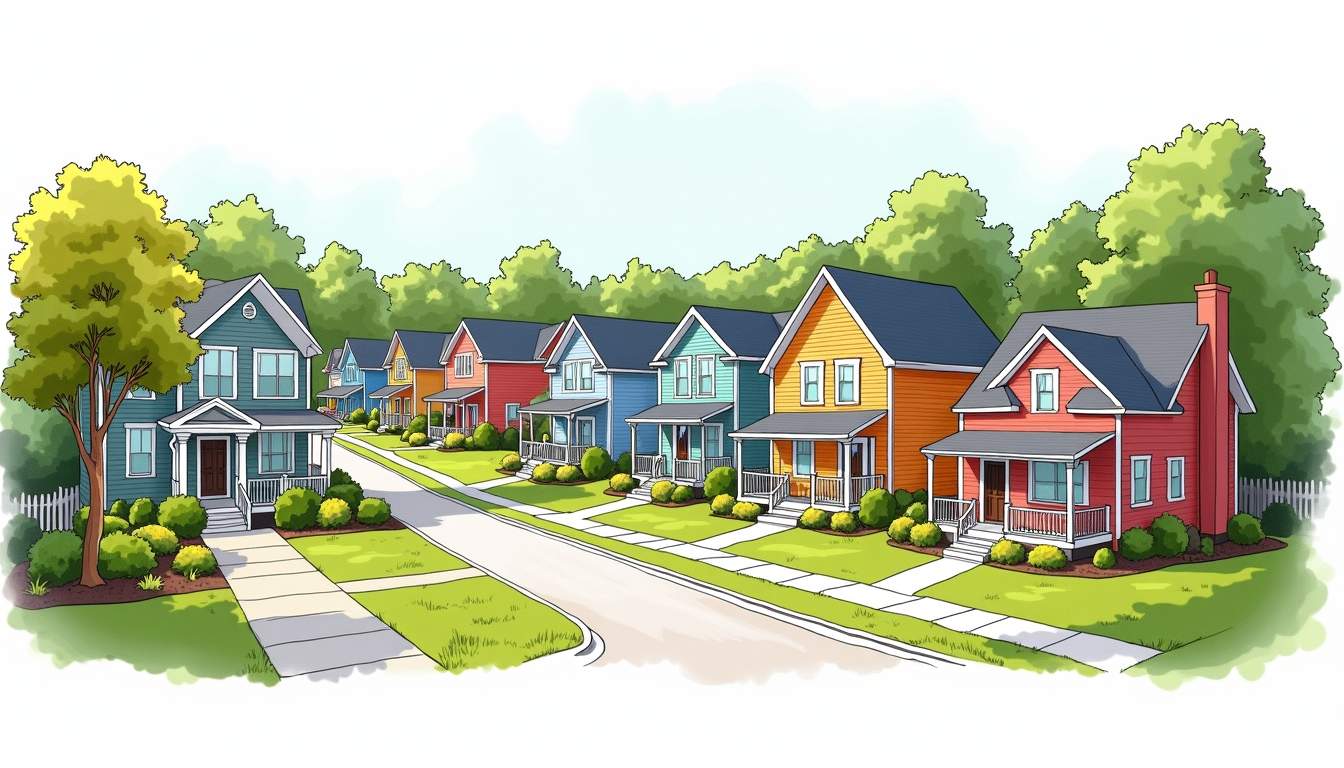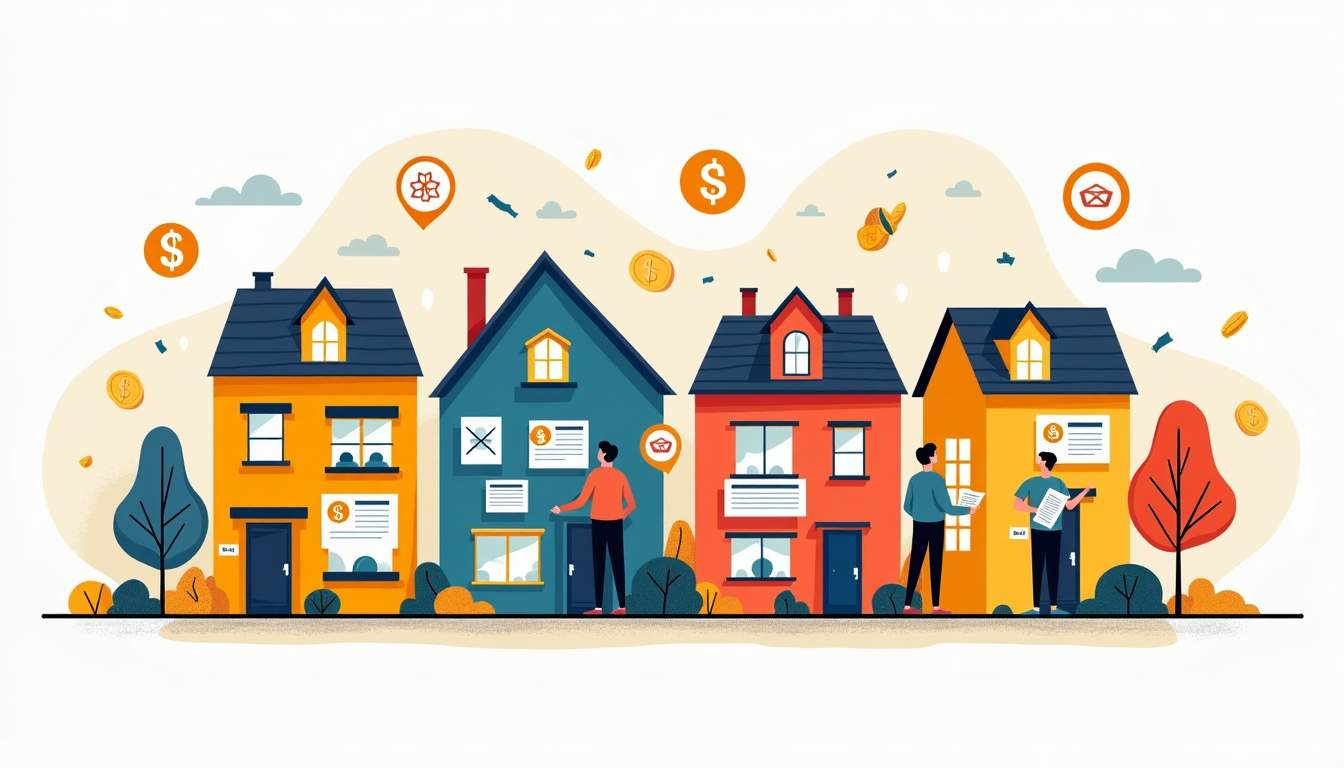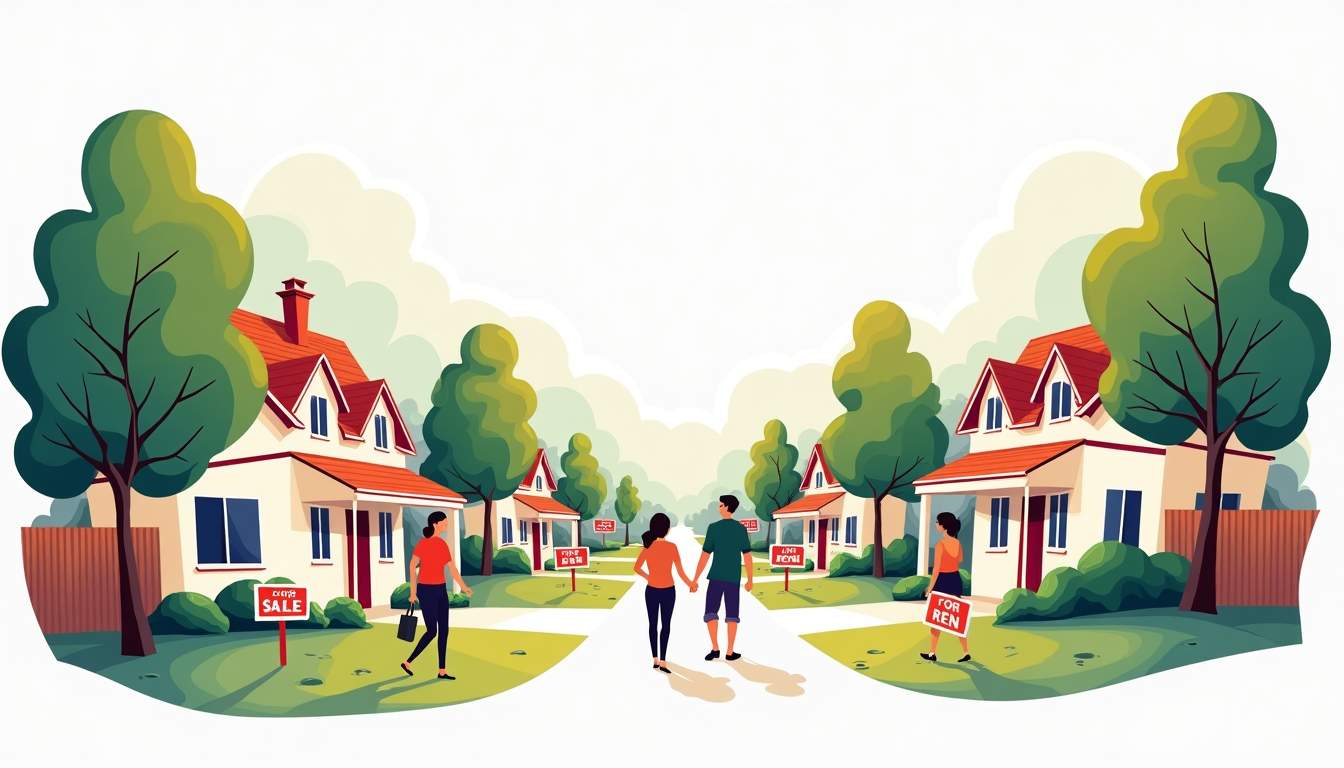
Tennessee's real estate market has been evolving beyond the traditional buy-and-own model. Increasingly, buyers and renters are seeking neighborhoods that offer more than a house — they want a lifestyle shaped by community interaction, purposeful amenities, and local culture. This guide explains how social lifestyle real estate works in Tennessee, what to look for when choosing a community, and practical advice for making a move that matches both social needs and financial goals.
Social lifestyle real estate refers to residential developments designed around shared amenities, community engagement, and an emphasis on social interaction. These properties might include co-housing complexes, mixed-use neighborhoods, age-targeted communities, or master-planned developments with programming structured to bring neighbors together.

In Tennessee, this concept adapts to local culture: outdoors-oriented communities near lakes and rivers, urban infill projects in Nashville and Knoxville with vibrant street life, and smaller towns where social life centers on local festivals and community centers.
Developers in these areas often focus on creating spaces that encourage spontaneous connections, such as communal gardens, outdoor amphitheaters, and multi-purpose clubhouses. Additionally, local businesses and artisans are frequently integrated into these developments, providing residents with convenient access to unique shops, cafes, and cultural events that further promote neighborhood interaction.
Moreover, environmental sustainability often plays a role in social lifestyle real estate, with green building practices and energy-efficient designs helping to foster a shared sense of responsibility among residents. This not only benefits the environment but also strengthens the community’s collective identity and pride in their living environment.
Tennessee offers a variety of environments—mountain towns, river valleys, mid-sized cities, and suburban regions—making it fertile ground for lifestyle-focused development. Lower cost of living compared with many coastal states, a diverse economy, and a rising population of remote workers have all fueled demand for communities that offer connection as well as convenience.
Additionally, Tennessee's strong cultural fabric—live music, food traditions, outdoor recreation—naturally complements lifestyle communities, helping developers design socially rich neighborhoods that feel authentic rather than manufactured.
Several demographic trends underpin the growth of social lifestyle real estate: aging baby boomers seeking downsized homes with social programming, millennials valuing walkability and communal experiences over square footage, and remote professionals pursuing live-work-play environments. These groups value proximity to cultural hubs, access to nature, and built-in opportunities to meet neighbors.
There are several models to consider, each with its advantages and trade-offs. Knowing the differences helps match expectations to lifestyle preferences.
Co-housing communities emphasize shared spaces and cooperative decision-making. Private homes or apartments are supplemented by communal kitchens, gardens, and activity spaces where residents coordinate events and daily life tasks. In Tennessee, these often appear near college towns or in rural settings where land is available for shared amenities.
Active adult communities for 55+ residents frequently combine social clubs, fitness classes, and organized outings to encourage engagement. In Tennessee, many such developments integrate walking trails, on-site healthcare partnerships, and cultural programming tailored to retired or semi-retired lifestyles.
Mixed-use neighborhoods combine residential units with retail, restaurants, and offices. These are common in growing cities like Nashville, Chattanooga, and Knoxville. The design encourages spontaneous social interactions and supports local businesses, creating a vibrant street-level culture where residents can walk to coffee shops, markets, and live music venues.
These large-scale developments often include multiple housing types, recreational facilities, schools, and green spaces. They can host festivals, farmers markets, and neighborhood clubs. In Tennessee, master-planned communities frequently capitalize on natural features—lakes, rivers, or hills—to attract outdoor enthusiasts alongside those seeking social amenities.
A community's physical design and programming determine how easily social connections form. Amenities that most effectively encourage regular interaction include shared outdoor spaces, accessible community centers, and activity programming that spans age groups and interests.
Green spaces, parks, and connected trail systems provide natural gathering points for both planned and impromptu interactions. Communities that invest in landscaped plazas, community gardens, and pedestrian pathways often report stronger neighbor networks and higher resident satisfaction.
Clubhouses with multipurpose rooms, fitness centers, and kitchens create opportunities for clubs, classes, and social events. When residents have a central indoor hub that is welcoming year-round, social activity isn't limited by weather or season.
Regularly scheduled activities—farmers markets, outdoor movie nights, fitness classes, and holiday celebrations—are essential. Developers or homeowner associations that prioritize inclusive programming help build routine social habits among residents, which leads to deeper community bonds.
Built environments influence behavior. Thoughtful neighborhood design can make it easier for people to socialize, feel safe, and engage with community life.
Designs that prioritize sidewalks, short blocks, and mixed-use hubs encourage residents to leave their cars and interact on the street. Walkable neighborhoods reduce isolation and make daily encounters with neighbors more frequent and natural.
Smaller lots, front porches, and houses that face the street rather than turning away invite chance conversations. Human-scale elements—benches, lighting, and street trees—create comfortable public realms that foster lingering and conversation.
Porches, stoops, and shared gardens act as transitional spaces between private life and public interaction. These areas allow casual social exchanges without demanding formal invitations, lowering the social barrier to meeting new people.
Price points for social lifestyle communities in Tennessee vary widely. Urban infill units in Nashville will cost significantly more than a single-family home in a smaller town. Beyond purchase price, residents should consider ongoing costs like HOA fees, programming dues, and maintenance for shared amenities.

HOA fees typically cover landscaping, amenity maintenance, and sometimes utilities or security. In lifestyle-focused developments, programming and event budgets may also be included. Evaluating the HOA budget and reserve funds is crucial to avoid unexpected assessments that could affect long-term affordability.
Properties in desirable, social lifestyle communities often see steady demand because of their appeal to broad demographic groups. However, resale value depends on location, quality of construction, and how well the community sustains its programming and maintenance over time.
Selecting a lifestyle community requires both objective evaluation and gut-level fit. The right match should align with daily routines, social preferences, and long-term plans.
Before committing, visit the neighborhood during different times of day and attend a public event if possible. Observing how people interact and how well amenities are used will offer clear insight into community dynamics.
Conversations with residents reveal the unadvertised realities—how active programming is, whether HOA rules are reasonable, and how conflicts are handled. Seek candid feedback about both benefits and pain points.
Consider proximity to essential services such as healthcare, grocery stores, and transit. Even the most socially vibrant community can feel isolating if daily logistics are challenging.
Several Tennessee communities illustrate how social lifestyle real estate can take different shapes while achieving similar goals of connection and quality of life.
In cities with revitalized downtowns, mixed-use developments have created new neighborhoods where music venues, restaurants, and parks coexist with residential units. These areas attract young professionals and creatives who prioritize social life and convenience.
Communities built around lakes or river access emphasize shared outdoor programming: boating clubs, trail maintenance days, and seasonal festivals. These natural anchors provide social rituals that bond residents around common interests.
In smaller towns, intentional co-housing and community land trusts have introduced social living without sacrificing rural character. Shared resources like tool libraries and community kitchens help maintain affordability while strengthening neighborhood ties.
No community model is perfect. Recognizing common challenges helps set realistic expectations and guides better decision-making.
Some lifestyle developments impose many rules that can feel restrictive. Reviewing governing documents and understanding enforcement practices will clarify how much autonomy remains for residents.
When events are mandatory or overly frequent, participation can become a burden rather than a joy. Look for communities that offer optional, diverse programming and do not rely on a few volunteers to keep everything running.
Unique ownership structures—co-housing, land trusts, or cooperative models—can complicate mortgages and insurance. Working with lenders and agents familiar with these models reduces surprises during closing.
Start by listing non-negotiables: desired commute time, budget, preferred amenities, and social intensity. From there, create a short list of communities and schedule visits to assess fit. Professionals—agents, planners, and local community managers—can offer insights tailored to Tennessee markets.

Leveraging local events and spending time in neighborhoods of interest remains the most reliable method to judge whether a place will feel like home. Communities that align programming with resident interests and maintain transparent governance will deliver the best social and financial outcomes over time.
Social lifestyle real estate in Tennessee presents an opportunity to live within neighborhoods designed for connection, convenience, and cultural richness. With varied models across urban, suburban, and rural contexts, the state offers options for diverse preferences—from active outdoor living to energetic downtown scenes. Careful evaluation of design, amenities, costs, and governance will help ensure that a chosen community supports both social wellbeing and long-term value.
Embrace the social lifestyle highlighted in this guide by exploring Tennessee National, a premier gated community where luxury meets connection. Enjoy exclusive amenities like a Greg Norman Signature Golf Course, private marina, and waterfront dining, all set amid scenic natural beauty. Whether you prefer a move-in ready home or a custom build, Tennessee National offers a vibrant, resort-style living experience designed to foster community and well-being. Schedule a private tour today and take the first step toward a connected, fulfilling lifestyle.